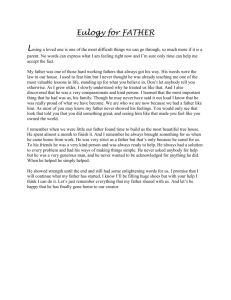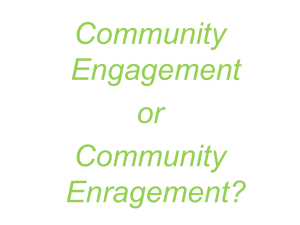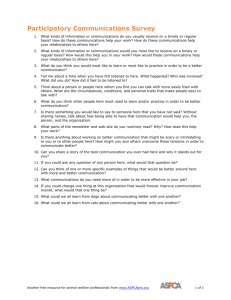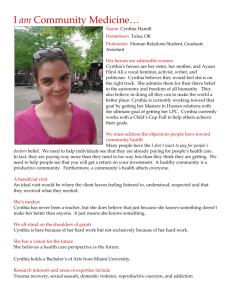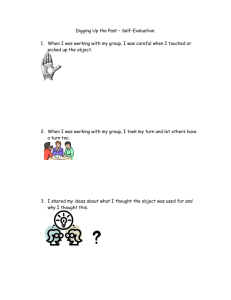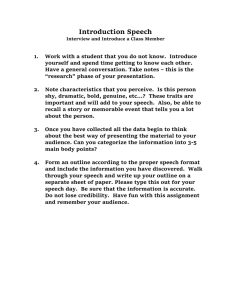Ms. McAteer Interview Transcription Nathaniel Tolbert: Cat McAteer:
advertisement
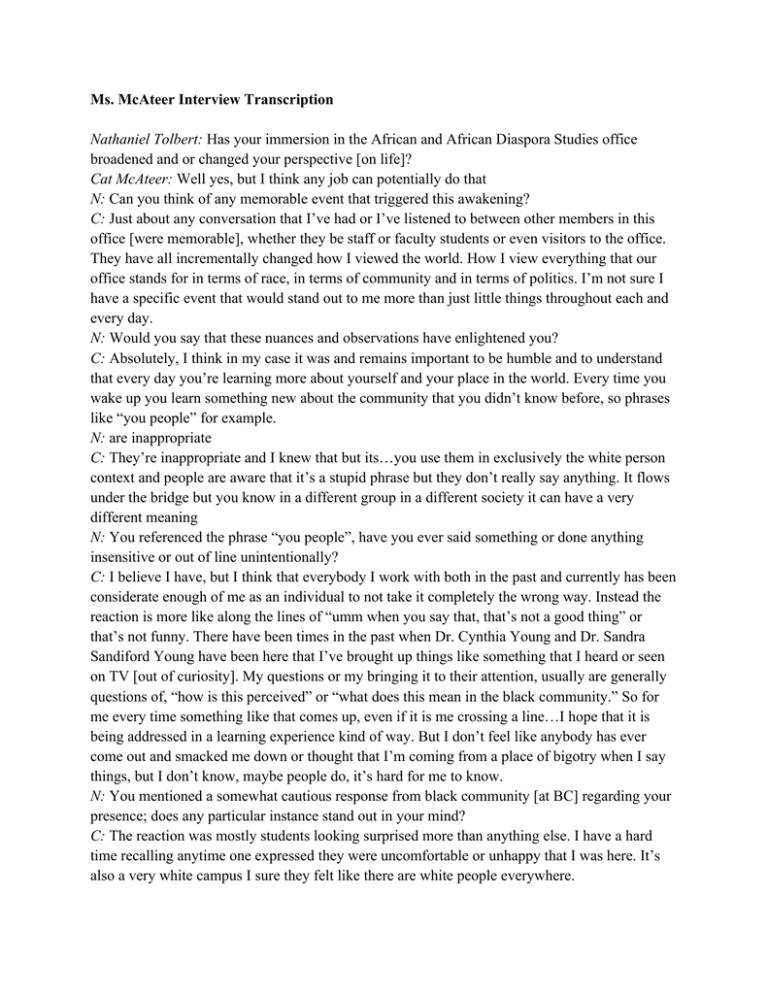
Ms. McAteer Interview Transcription Nathaniel Tolbert: Has your immersion in the African and African Diaspora Studies office broadened and or changed your perspective [on life]? Cat McAteer: Well yes, but I think any job can potentially do that N: Can you think of any memorable event that triggered this awakening? C: Just about any conversation that I’ve had or I’ve listened to between other members in this office [were memorable], whether they be staff or faculty students or even visitors to the office. They have all incrementally changed how I viewed the world. How I view everything that our office stands for in terms of race, in terms of community and in terms of politics. I’m not sure I have a specific event that would stand out to me more than just little things throughout each and every day. N: Would you say that these nuances and observations have enlightened you? C: Absolutely, I think in my case it was and remains important to be humble and to understand that every day you’re learning more about yourself and your place in the world. Every time you wake up you learn something new about the community that you didn’t know before, so phrases like “you people” for example. N: are inappropriate C: They’re inappropriate and I knew that but its…you use them in exclusively the white person context and people are aware that it’s a stupid phrase but they don’t really say anything. It flows under the bridge but you know in a different group in a different society it can have a very different meaning N: You referenced the phrase “you people”, have you ever said something or done anything insensitive or out of line unintentionally? C: I believe I have, but I think that everybody I work with both in the past and currently has been considerate enough of me as an individual to not take it completely the wrong way. Instead the reaction is more like along the lines of “umm when you say that, that’s not a good thing” or that’s not funny. There have been times in the past when Dr. Cynthia Young and Dr. Sandra Sandiford Young have been here that I’ve brought up things like something that I heard or seen on TV [out of curiosity]. My questions or my bringing it to their attention, usually are generally questions of, “how is this perceived” or “what does this mean in the black community.” So for me every time something like that comes up, even if it is me crossing a line…I hope that it is being addressed in a learning experience kind of way. But I don’t feel like anybody has ever come out and smacked me down or thought that I’m coming from a place of bigotry when I say things, but I don’t know, maybe people do, it’s hard for me to know. N: You mentioned a somewhat cautious response from black community [at BC] regarding your presence; does any particular instance stand out in your mind? C: The reaction was mostly students looking surprised more than anything else. I have a hard time recalling anytime one expressed they were uncomfortable or unhappy that I was here. It’s also a very white campus I sure they felt like there are white people everywhere. N: Part of the territory. C: Yeah. I think plenty of the part-time faculty who left when Dr. Cynthia Young came in thought that my being hired… N: It was a changing of the guard, a white-washing of the program. C: Yes, definitely a change. But, I don’t feel like anybody regarded me or spoke to me with outright suspicion. N: You talked about how the struggle to raise the black studies program profile became your struggle. Can you elaborate on that? C: I think in taking a job if you’re good at what you do, then you care deeply about what it is you’re doing. I’m not necessarily saying I’m good at what I do, but I do care deeply about what I’m doing. It hasn’t been easy because it is coming from a different perspective from the one I was raised with and studied in school. But at the same time the fundamental issues at stake here on campus and for the black community as a whole, nationally and globally, are pretty simple. I mean it’s perfectly understandable why you would want to be understood or be allowed to have as much as a voice or presence and not feel poached, misunderstood or oppressed. Being a “minority” in a “minority” office you start to see as you understand more of the nuances [of the culture]. Learning more about the institutional racism and other issues, you can’t help but think this is the easiest thing in the world for people---for everybody---to understand that this is not right. People shouldn’t be treated like this or sidelined. People should be listened to and communities should have a voice. If this is where I am at right now, this is the fight I’m fighting.
